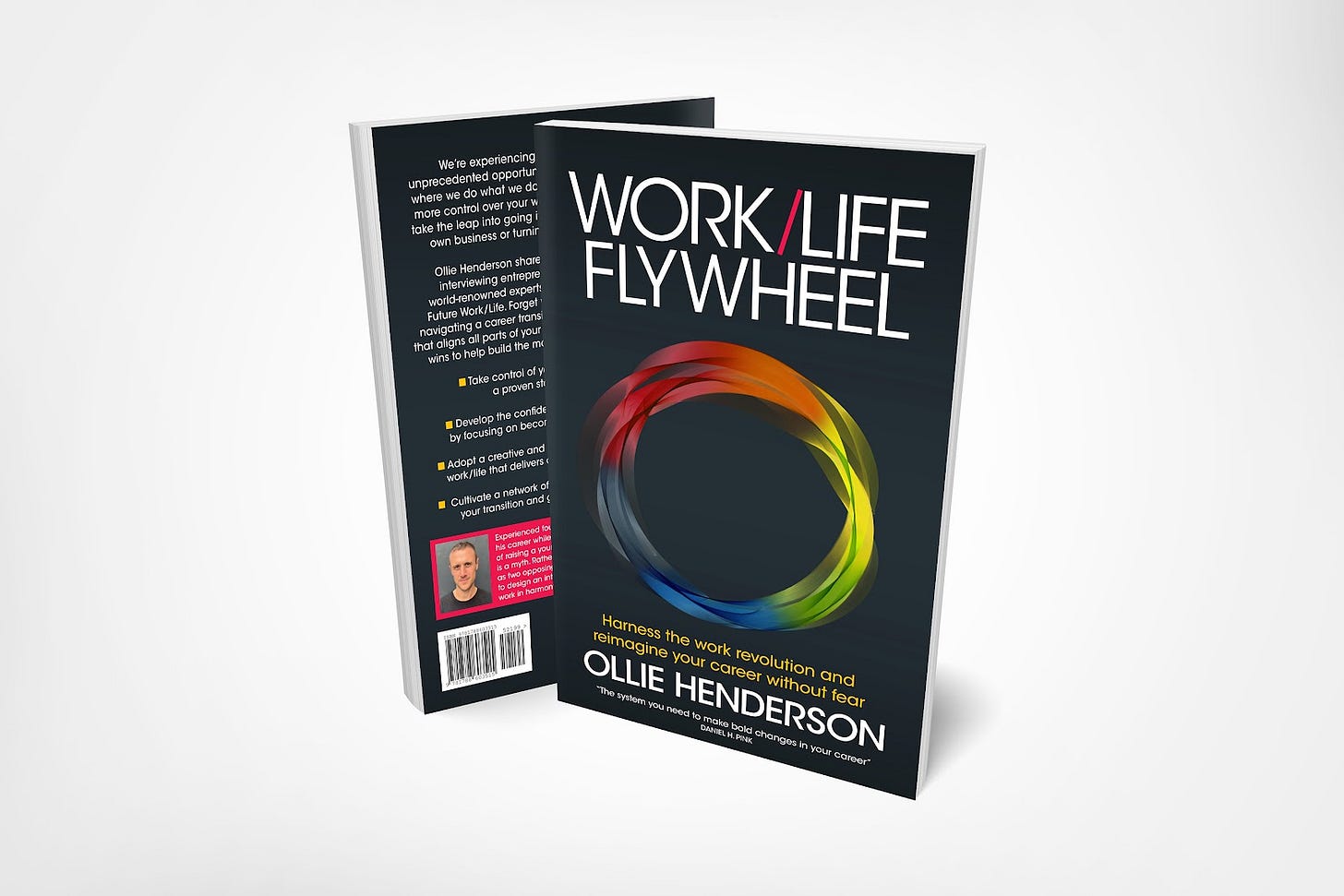Future Work/Life is my newsletter in which I explore ideas focused on the future of work and how to design legendary careers. If you find it interesting, please share it!
There’s no shortcut to greatness.
Whatever your natural talent - in whichever field or pursuit - it’s unlikely genetics alone will grant you complete mastery. If you achieve it, you’ll combine innate skill with determination and durability. I can say this with authority because recently, I’ve been bingeing on my new favourite podcast – Founders, hosted by David Senra.
David – and since he’s spent so long talking in my ear recently, I feel like we’re on first-name terms – spends his days reading biographies of legendary founders, then records himself talking about them.
Trust me, it’s bloody brilliant!
I’ve always loved history. As a kid, nothing would evoke such excitement as learning about the trials and tribulations of civilisations - new and old. I found it amazing that people thousands of years ago could have such perceptive insights, particularly about human nature and motivation. It helped me realise that very little is happening today that hasn’t happened before.
Combine this with my interest in business and start-up life, and this podcast really hits the spot, as I’m sure you’ll appreciate!
Founders demonstrates that universal lessons apply whatever the era. Whether starting a company during the Industrial Revolution, the Post-War period, or in 2023, you’ll encounter the same challenges and opportunities. And while those that thrive may not always share similar personalities or philosophies, they display many of the same characteristics.
Chief among them is a willingness to be in the game for the long term.
In the modern era, great entrepreneurs like James Dyson typify this. The inventor of the bagless vacuum faced rejection after rejection for 14 years! He didn’t just keep going during this time. He continued to learn and master his craft. He taught himself to become one of the great engineers of our time.
And how about Jeff Bezos?
Among the many ‘Jeffisms’ repeated by the Amazon founder about long-term thinking is that:
“I don't think that you can invent on behalf of customers unless you're willing to think long-term because a lot of invention doesn't work. If you're going to invent, it means you're going to experiment, and if you're going to experiment, you're going to fail, and if you're going to fail, you have to think long term.”
Reflecting on success in her autobiography, beauty entrepreneur Estee Lauder wrote:
What makes a successful businesswoman?
Is it talent? Well, perhaps. Although I've known many enormously successful people who are not gifted in any outstanding way and not blessed with particular talent.
Is it then intelligence? Certainly intelligence helps, but it's not necessarily education or the kind of intellectual reasoning needed to graduate from the Wharton School of Business that are essential.
What, then, is this mystical ingredient?
It's persistence.
It's that certain little spirit that compels you to stick it out when you're at your most tired.
It's that quality that forces you to persevere. To find the root around the stone wall.
It's the immovable stubbornness that will not allow you to cave in when everyone says give up.
The question is, then, what inspires such persistence?
It’s purpose.
It’s that need to satisfy your curiosity and pursue your ambition because it’s meaningful.
It’s that quality that can be hard to pin down until you discover it and can’t let go.
The more I learn about great founder stories, the more I see this pattern:
Loving what you do gives you purpose, meaning it doesn’t feel like work, and you’re happy to do more of it.
Consistency, persistent hard work and experimentation allow you to develop mastery.
Leveraging that mastery leads to greatness.
So what are my calls to action?
Check out David’s podcast (I've included links to all the founder episodes I've mentioned in this article).
Ignore those who say it’s impossible to love what you do because loving what you do will help you achieve mastery - and perhaps greatness.
If you’re struggling for clarity on how to get started in discovering the thing you love, order a copy of my bestselling book, Work/Life Flywheel!
And don’t hang about, because as Warren Buffett, who perfectly characterises staying power, has said:
“There comes a time when you ought to start doing what you want. Take a job that you love. You will jump out of bed in the morning. I think you are out of your mind if you keep taking jobs that you don't like because you think it will look good on your resume. Isn't that a little like saving up sex for your old age?”
Have a nice weekend!
Ollie
For more on the importance of thinking long-term, listen to this week’s Future Work/Life podcast with JK Molina
And if you haven’t already, check out Work/Life Flywheel. I think you’ll like it!
Here’s what Rory Sutherland, Vice-Chairman of Ogilvy, and author of Alchemy: The Surprising Power of Ideas That Don't Make Sense, has said about it:
“Work and leisure have become a false dichotomy. As Ollie Henderson shows using the superb Flywheel metaphor, done right, each can make you better at the other.”





